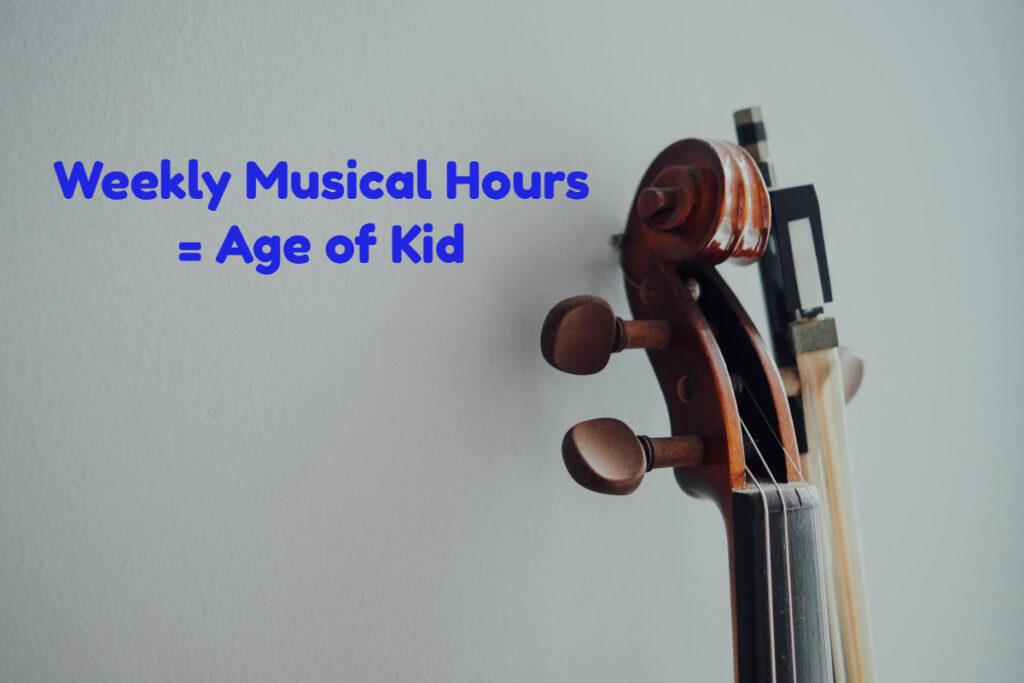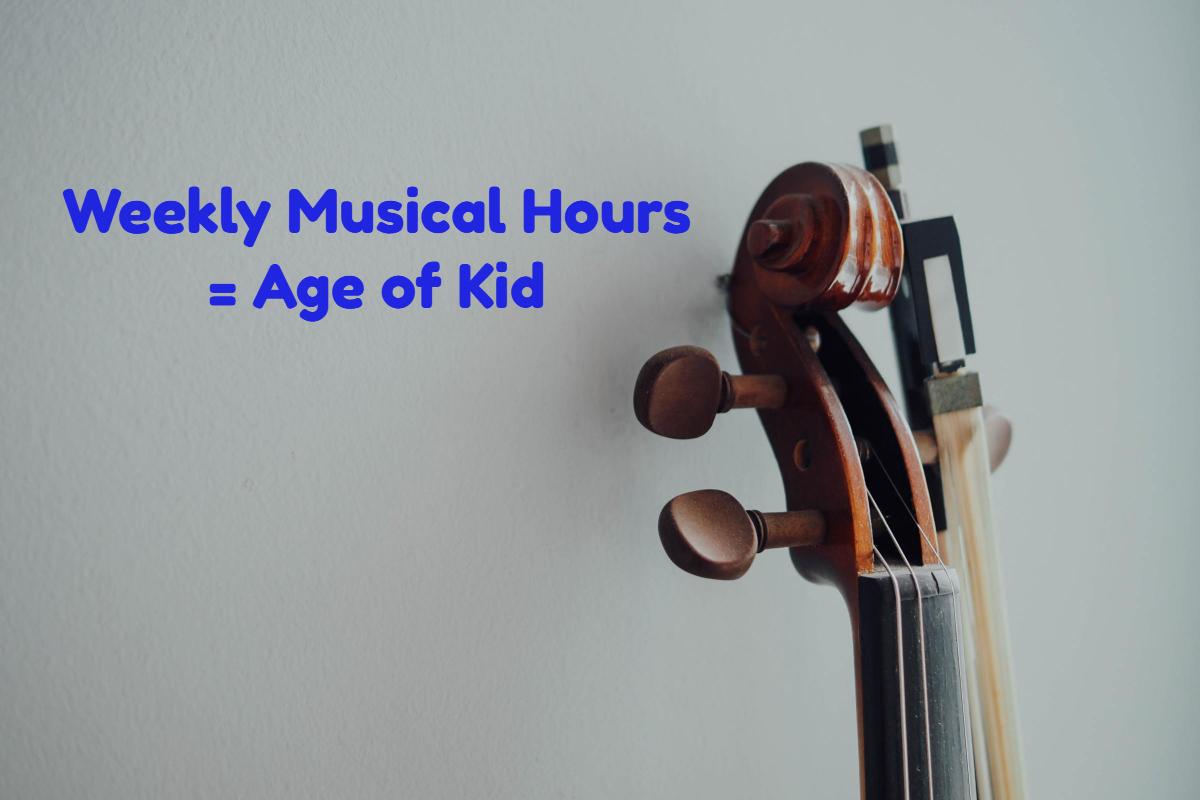Practice musical instrument requires a focused and dedicated time without interruptions. There is no stringent rule regarding how long. In the beginning, parents’ primary goal is to help kids practice consistently to form a habit. Consistency is programming your mind and body to play the instrument correctly, progressing in skill and level as time goes by. At least 10 minutes every day for 30 days can help you form the habit, while increasing it moving forward will lead you to mastery.
Table of Contents
What are the Benefits of Practice musical instrument?
The practice provides two significant benefits – mastery and habit formation. These two are essential in building a solid foundation in playing a musical instrument, and it enables you to continuously improve over time, hone your skills, and maximize your potential. Practice also helps you continue the learning at home. Music classes offer only a limited learning window for their students. Whereas practicing your instrument at home allows you to apply the knowledge at your own pace and in a more comfortable environment.
For beginners, practicing the instrument consistently is vital in their progress. The keyword there is “consistency,” – which means you have to acquire the habit of allotting dedicated time to play your instrument without interruptions repeatedly.
Habit formation allows you to learn faster and acquire instincts in playing. This is where “playing by the heart” comes in – where you now find playing pleasurable, effortless, and natural.

How Long Should You Practice?
A Rule of thumb from our piano teacher is: how old are you = how many hours you need to practice music per week (including lessons). Same with pocket money per week as well! If you start as 5 years old, then everyday 40 min is a decent practice time and a bit more in the weekends. For young kids, it is very challenge for 40 min practice in one goal, it is better to split into two parts, for example, 20 min in the morning and 20 min in the afternoon. Moreover, practice music is not entirely equal to the instrument, you can practice singing, learning theory etc.
Practicing your instrument consistently can lead you to form the proper habits, skills, and eventually, mastery. And even if you have reached the goal, practice can help you with retention. Master musicians can still benefit from continuous and consistent practice because it helps them develop playing techniques they can eventually use for teaching and guiding beginners.
For a better perspective of things, let us look at different levels of benefits you can acquire from practice based on the number of hours you put into it.

Young Kids to Start: 10 – 20 Minutes per Day
If you are a beginner, aim to incorporate practice musical instrument into your daily routine, which can help you learn faster and acquire skills more effectively. You have probably spent 30 min in music lessons, and practicing at home for 10 – 20 minutes a day can help you retain what you’ve learned. It will also allow you to come more prepared for your next class, focusing on learning new skills rather than catching up on yesterday’s lessons.
Especially if you choose to attend group lessons, practicing at home can help you cope with your other peers’ progress. If you get behind the studies, practicing at home can help you keep up.
For young kids, it might be an effort already to sit down with them. Hanging there, they start to practice soon.
Young Kids to Practice: 30 – 40 Minutes per Day
Doubling your instrument practice time can help you see more solid achievements. Longer practice hours mean more time for repetition, allowing your brain to form more and stronger neural patterns. This hastens your progress in terms of memorization, as well as in mind-body coordination.
Practicing more hours per day consistently can also help in establishing long-term memory. And this can help you in the long run, especially if you decide to take playing your instrument to the next level.
Young Kids to Perform a Concert: 1 Hour per Day
For an increased likelihood of success, introduce a bit of the warm-up session before the actual practice. Remember that an hour of practice per day could be draining or straining for some, particularly beginners. You can split the time and have a break in between according to your daily schedule. This is why you should not devote an hour of exercise right away. You have to come prepared for the physical, mental, or emotional exhaustion you may eventually experience as you reach this point. Hence, you have to have that constant source of motivation and inspiration to cling to continue moving forward.
Teenager or Adults: 1 to 2 Hours per Day
If you want to reach real milestones and have celebration-worthy achievements, music experts are recommending 1 to 2 hours spent on practice musical instrument daily. And not everyone can be consistent in achieving this feat. However, if you put your mind and heart into your instrument, this is possible.
However, remember that practicing long hours is not just all you need, and you also have to make sure you are prepared and committed to the goal. Program your mind to welcome challenges and get ready with counterattacks to distractions and interruptions.
Practicing your instrument is a journey. Despite reaching the end goal, keeping up with it can still bring you vast benefits. When it comes to spending as much time, remember that consistency is the key to long-term success. Pick a schedule that you can most likely stick with, considering your daily lifestyle. And it is best to have an accountability partner.
Practicing Tips for Success
Here are more practicing tips for success in playing your instrument.
Practice Smart, not Hard
Sometimes, no matter how hard kids try or how long they practice, some skills are simply challenging to master. Instead of practicing after the music lessons for the day when your mind is tired, maybe have a good sleep first and have a well-rested mind and body to play the instrument better.
Set Goals
Goal setting provides you guidance, set milestones, and assesses your progress. Beginners and those attending music lessons are usually given assignments they can do at home or to aid in their practice sessions. Setting goals for the day or the week can help you stay on track and motivate you to keep moving forward.

Time Your Practice
Proper timing can make a huge difference in kids’ success. They may be practicing for long hours per day but is too tired to absorb the skills. Timing can help you make the most out of your practice time, short or long. What’s important is the quality of the practice instead of the quantity. Make sure to work around a realistic schedule, so you’ll likely stick with it. Again, practicing the instrument for success is rooted in consistency, and also, make sure you have proper and enough rest in between practices.
Be the Kids’ Partner
For kids, getting an accountable partner in practice sessions can help them stay consistent with the schedule, helping them assess progress and also share some areas you can improve on. Be the kids’ partner instead of examiner, always encourage them and help them stay motivated and set on the goal.

Conclusion
Helping kids to practice musical instrument consistently can help them acquire the right skills, improve your level, and master it. Thus, as parents, we need to provide an uninterrupted and dedicated time for kids playing every day. With the right mindset, hard work, and accountability from a teacher or partner, they will surely reach the goal and enjoy their music more.
About Me
Hi, there. I am Lin. Together with my husband and two kids, we live in the beautiful Netherlands in Europe. I am dedicated to self-development, creating quality time for the whole family, and fully supporting kids with their potentials and possibilities with all I have learned from engineering, MBA, and 10+ years of working experience in the energy sector.


